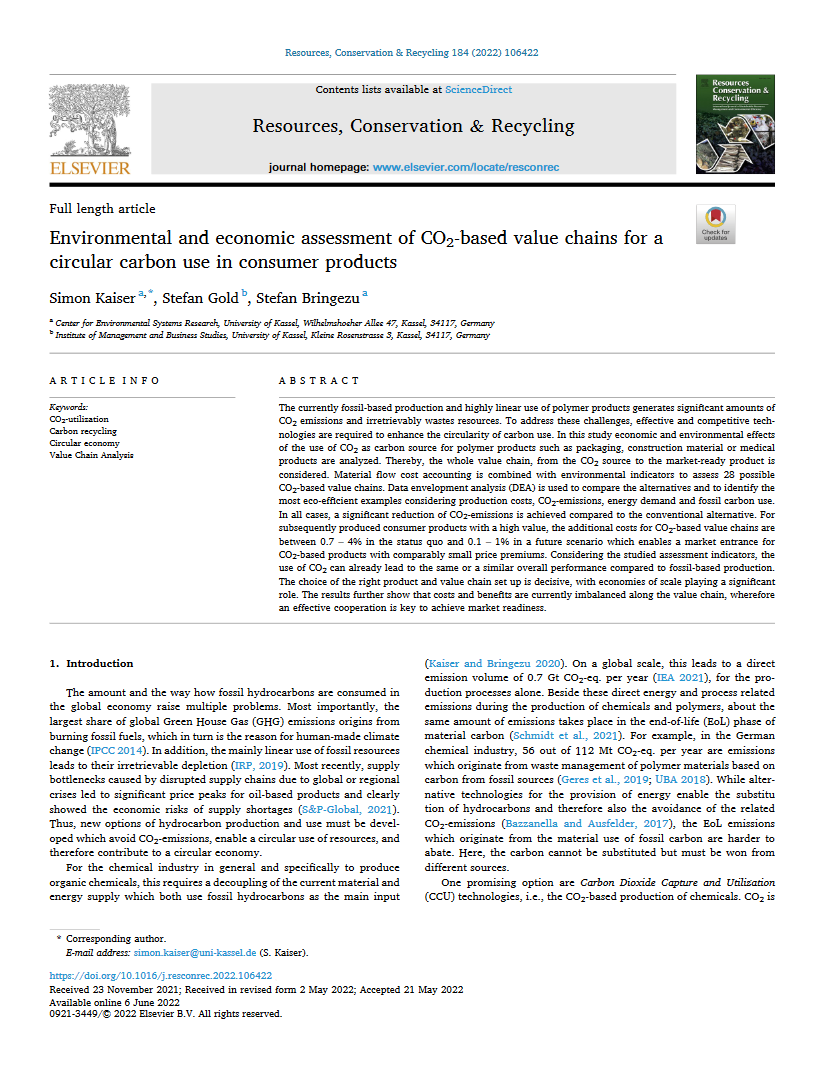The currently fossil-based production and highly linear use of polymer products generates significant amounts of CO2 emissions and irretrievably wastes resources. To address these challenges, effective and competitive technologies are required to enhance the circularity of carbon use. In this study economic and environmental effects of the use of CO2 as carbon source for polymer products such as packaging, construction material or medical products are analyzed. Thereby, the whole value chain, from the CO2 source to the market-ready product is considered. Material flow cost accounting is combined with environmental indicators to assess 28 possible CO2-based value chains. Data envelopment analysis (DEA) is used to compare the alternatives and to identify the most eco-efficient examples considering production costs, CO2-emissions, energy demand and fossil carbon use. In all cases, a significant reduction of CO2-emissions is achieved compared to the conventional alternative. For subsequently produced consumer products with a high value, the additional costs for CO2-based value chains are between 0.7 – 4% in the status quo and 0.1 – 1% in a future scenario which enables a market entrance for CO2-based products with comparably small price premiums. Considering the studied assessment indicators, the use of CO2 can already lead to the same or a similar overall performance compared to fossil-based production. The choice of the right product and value chain set up is decisive, with economies of scale playing a significant role. The results further show that costs and benefits are currently imbalanced along the value chain, wherefore an effective cooperation is key to achieve market readiness.

